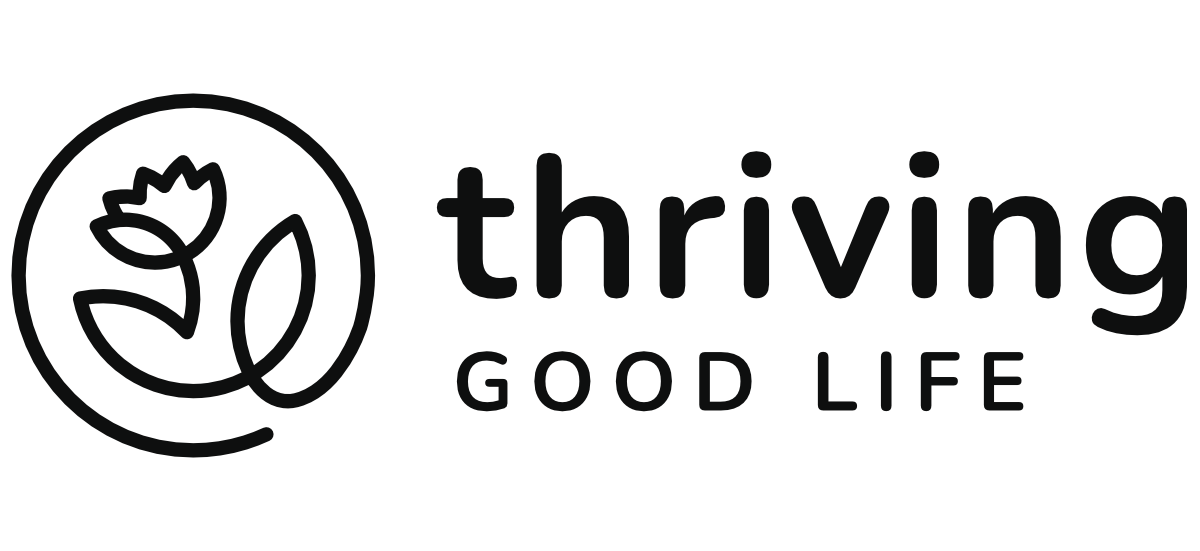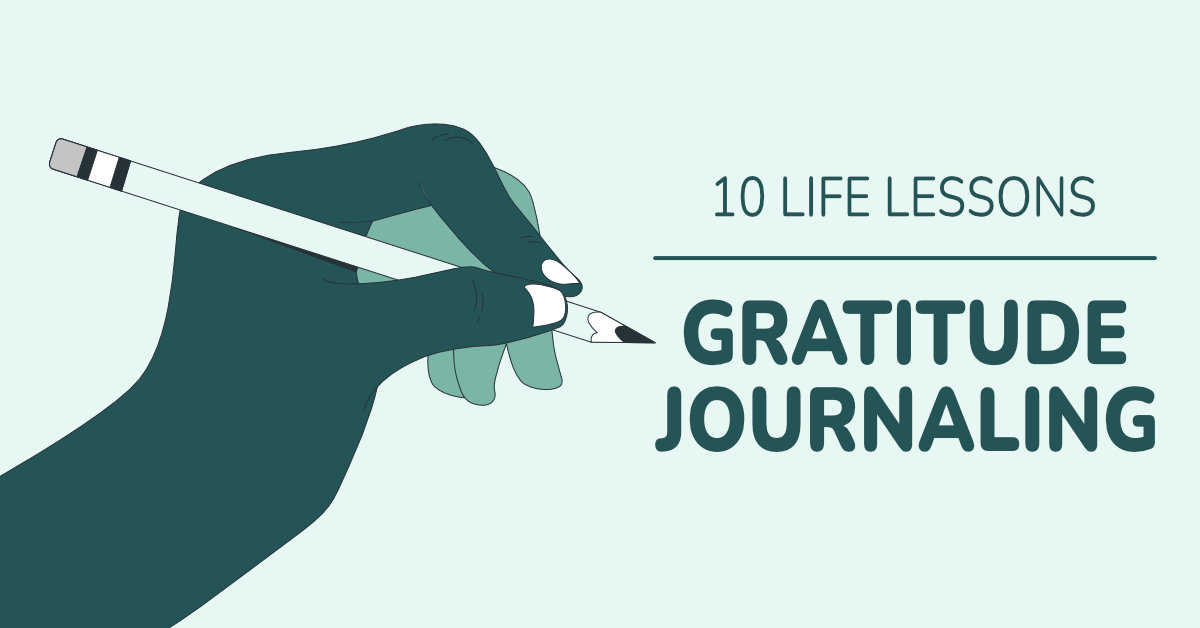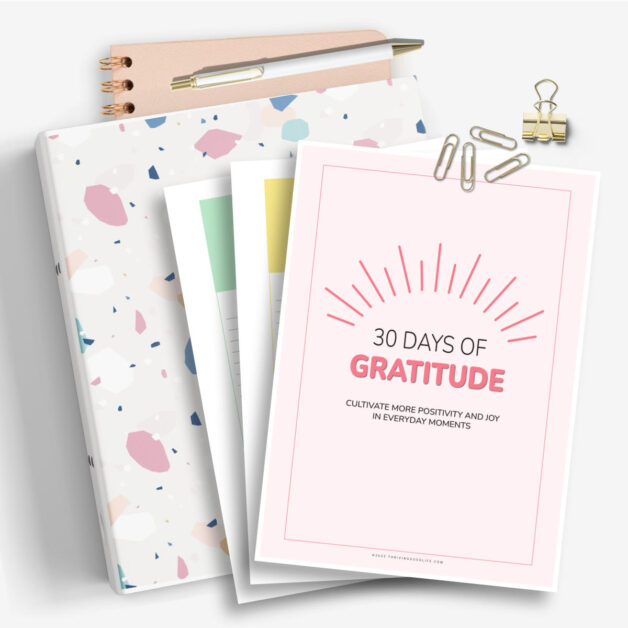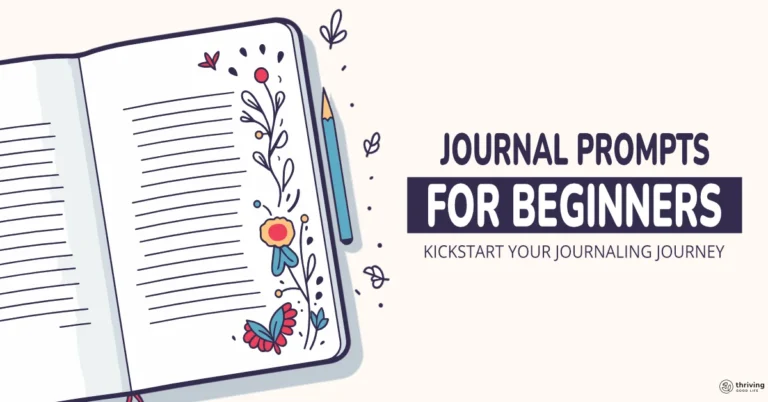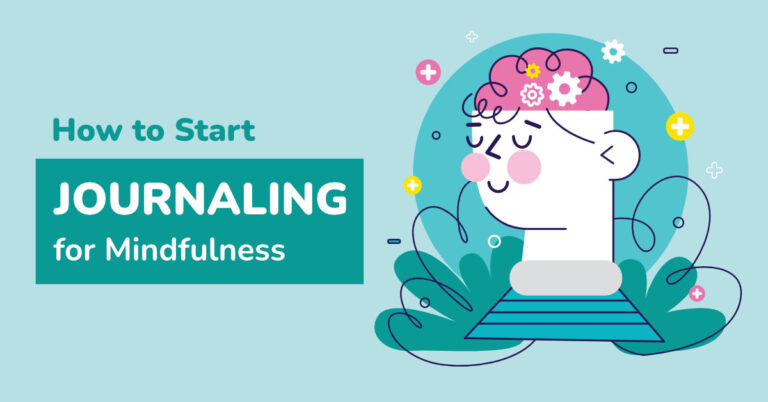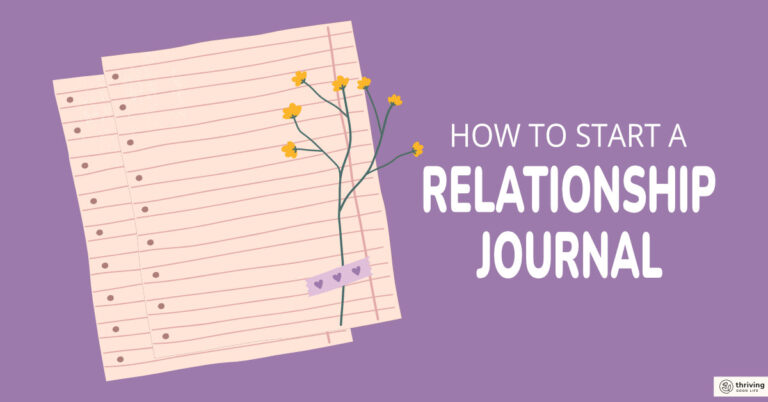We met at a networking event.
Her eyes were alight with wonder and her energy was contagious. We chatted for a bit. Exchanging small talk and discussing business-y things, before stumbling upon the topic of gratitude journaling.
She opened up about her struggles with maintaining a daily gratitude journal, the pressure to stay consistent, and to ‘do better’ despite not feeling as though it was working for her.
I could relate to the frustration. I’ve felt that feeling too, and it’s a real buzz killer.
For over a decade, I’ve been using my journal as a place to express my deepest thoughts and emotions, with occasional moments of gratitude logging woven in.
But after my conversation with this lady, I couldn’t help but reflect on the impact sporadic gratitude journaling has had on my own life.
So, today I’m sharing 10 things I’ve learned from my irregular, but transformative gratitude journaling practice. I hope they’ll inspire you to keep up your practice alive.
Lessons Learned from Gratitude Journaling
1. Not everyone has the mental or emotional space for it
I’m one of these people who when I find something that works for me, I want to share it with everyone.
Friends. Family. The neighbour’s cat… the whole freaking world.
I can be a little annoying like that.
But when it comes to gratitude journaling, I’ve learned it isn’t a wonder-fix for everyone. Some people don’t jive with it.
For people struggling to survive, ‘finding the good’ in dire circumstances isn’t priority number one. There’s only so much energy one can spend in a day and spending it on optimism or positivity when basic needs aren’t being met may seem futile.
It’s like this:
If you’re trapped inside a burning house, flames are licking at the walls and smoke is filling the air, making it difficult to breathe – the right thing to do is get the hell out.
It’s not to look for things to be grateful for. Not while you’ve got all that going on.
I’ve learned to contain my enthusiasm for gratitude journaling and to not try and push it down the throats of everyone I encounter. I get that not everyone will relate well to this practice.
Of course, I’m secretly hoping more people start to welcome this form of journaling into their lives. But only if it’s the right fit for them and their situation.
If you’re reading this, and you kinda hate the gushy gratitude stuff, you might not want to read any further.
But if you’re curious about the other 9 things I learned, read on.
2. You don’t need to journal about gratitude every single day, morning and evening to be ‘consistent’
I tried gratitude journaling every single day for a month straight.
It burned me out quicker than a wildfire in a dry forest.
And then I tried a more relaxed approach where I jotted down moments of appreciation – two, three, sometimes four times a week. And things felt better.
My practice is irregular, but I still reap the benefits.
Okay, so you might be thinking:
“Surely, I need to journal every day to build consistency and make it a habit”.
My question to you is this: Do you believe that doing something daily is the only way to create a habit?
I mean some people consistently go to the gym, meal prep, food shop, visit friends, go on date night with a spouse – but they don’t necessarily do all those things every single day.
I get it, we try to practice daily because that’s what some journaling experts tell us to do.
And most of us believe it takes 30 days to form a habit. So journal every day for 30 days and bam, you’ve caught yourself a habit. But habit formation is not as simple as that.
The average length of time it takes to form a habit has been hotly debated in the scientific community, with various research studies claiming it could take anywhere from 18 to 254 days 1.
This doesn’t necessarily mean it has to be consecutive days either.
And whether or not you catch a habit within a certain timeframe is dependent on a number of factors such as your level of motivation, your environment, and your personality.
Gratitude journaling is different for everyone. Figure out what works for you and go with that.
3. Gratitude flows when it flows
Gratitude can’t be forced or manufactured, it happens naturally and spontaneously.
I don’t want to wake up every morning at 5 am to try and squeeze three good things out of my brain. Only to feel like a loser when I can’t come up with anything new.
That’s not how my gratitude works.
Sometimes, I have nothing unique to write about. And I accept that.
I still experience gratitude daily. It comes in the form of an interesting, funny, quirky, or beautiful everyday or random occurrence. But it’s the type of organic-in-the moment gratitude that you feel or express verbally.
I don’t always feel compelled to write those down.
I can’t, nor do I want to force myself to write about every little thing in my gratitude journal.
But admittedly, I appear to have the grateful disposition trait, which could explain my stance 2.
4. Small things really do have the power to make you happy
I’ve heard this phrase in many different guises a million times over, but I never thought about it too deeply.
Until I started keeping a gratitude journal.
Now it’s as though I hyper-focus on the small stuff.
And often, those small happy-making moments make me giddy, as though I’m a 5-year-old discovering a new worldly wonder.
A few years ago I was out with friends.
It was a hot sunny day, and we were playing in the park. Throwing a battered old frisbee around, and laughing at our failed (*cough* my failed attempts) to catch it.
Suddenly, it started to rain. It was the kind of warm rain that slightly tickles your skin.
I looked up, with my hands held out, and with the biggest smile on my face, I exclaimed:
“Oh wow, it’s raining”.
It was just a tiny moment of my appreciation for nature.
Like, how it could be such a hot day, and yet rain at the same time. Nature is bizarre like that, but I’m here for it.
I must have surprised one of the guys in the group because he turned to me and said something along the lines of how I must be a happy person, and that radiating joy is one of my gifts.
It was such a small thing to be happy about, but the sunshine/rain and his astute observation made me grin like a Cheshire cat.
I thanked him for seeing my joy.
Writing about this is giving me goosebumps, but I’ve got to finish this article sooo let’s move on.
5. Gratitude creates a virtuous cycle that rubs off on others
When you exude gratitude, you radiate joy, positivity, and happiness to others. Just like my story above.
You brighten up their day a little.
But you also fuel your own happiness, well-being, and connection to humanity, giving you even more material to write about in your journal.
6. Your faith in humanity grows
Ever catch yourself saying: “Ugh. People. I hate them”.
Look, I’m not judging because sometimes people can be massive jerks that do assholery things that really piss you off.
I’ve had many ‘I hate people’ moments.
And I’ll probably have a few more throughout my lifetime.
But when I get to thinking negatively about the human species, my mind flips back to episodes of kindness diligently captured in my gratitude journal.
Like the time a couple of random strangers came to my rescue…
About three years ago my car broke down in the middle of the road. It was around 1 am.
So I’m sitting there, on a deadly cold night, a mere 300 yards away from where I live.
I didn’t have a roadside assistance policy to call upon. And I didn’t want to leave my car in it’s broken state.
After a few minutes, I spotted a couple of guys walking down the road. I gathered the nerve to approach them and ask if they could help me with my car.
Well… these dudes.
They ended up pushing my busted vehicle all the way to my house.
(Well, not my actual house. Just round the corner. It was late and although we exchanged pleasantries along the way, they were still fully-grown strangers and my reptilian brain was on high alert for danger).
Now, these kind souls didn’t have to get themselves all sweaty pushing my heavy lump of a car. They didn’t need to push my car 300 yards to a spot that wasn’t going to land me a parking ticket the next day.
But they chose to go above and beyond.
And trust me, I made them feel every bit of my gratefulness for their efforts.
A gratitude journal has the power to restore our faith in humanity.
It serves as a constant reminder that there are good, kind-hearted people in this world. It also gives us a space to appreciate the many ways people step up and show care for one another.
7. Managing a bad day or event gets easier
I’ll admit that when my car broke down at 1 am, my brain initially went straight into panic mode.
All sorts of worries and concerns flew through my mind:
- What if I can’t find anyone to help me?
- What if someone tries to attack me?
- What if it costs me an arm and a leg to fix this thing?
But as I sat there in the dark, other thoughts started to come to my mind:
- At least I wasn’t too far away from home.
- I could call my brother and he could help.
- I have money saved for emergencies like this.
- I’m physically strong. I can deadlift 100kg, I know how to land a punch, and I can scream for England while running super fast, sooo if someone did try to attack me…
When you regularly practice gratitude, it becomes easier to find hope in tricky or difficult situations.
In my case, recognising I had a supportive family member, emergency funds, and physical fitness helped to shift my perspective.
8. Hope is all around and we can be its gatekeeper
Because…
a) humanity – kindness, compassion, and generosity does exist, and
b) tomorrow always comes for those with the good fortune of seeing another day.
We can find hope in the form of a ‘thank you’, an apology, a letter, a hug, a kind word, a simple act of kindness, another person’s belief in us, a sincere response to whatever hell it is we’re going through.
Hope is all around.
We’re the gatekeepers of hope.
And when we capture those moments in our journals it serves as a source of inner power and inspiration as we navigate through the messiness of life.
9. Gratitude is a great motivator
It goes back to the dopamine reward we get when we experience something that makes us feel good about ourselves 3.
When someone says please and thank you, I appreciate it. I’m more likely to help them out again.
When I get up for the gym on a cold, frosty morning, to find ice on my car windscreen, I just want to haul my ass back to bed. But I push myself to go because I know my body will thank me for the workout later.
And when I’m able to carry multiple shopping bags to my front door in one trip, I’m grateful for having the strength to be able to do so.
10. Slooow. The. Heck. Down.
Instead of hastily scribbling in our gratitude journals, we can slow ourselves down, take the time to truly reflect, and let those feelings of thankfulness sink in.
Have you ever taken a leisurely stroll around your hometown?
The place where you currently live, and have lived for several years?
I’m usually in such a rush when I’m running errands that I don’t pay attention to what’s around in my area.
But whenever I slow myself down, I notice things I hadn’t noticed before – trees, buildings, smells, colours… cute baby squirrels playing tag.
It’s the same when we rush our journal entries.
Slowing down and taking the time to focus on our gratefulness… We get so much more out of journaling that way.
Hey, you’ve come this far, why not check this out:
FOOTNOTES:
- Lally, P., van Jaarsveld, C. H. M., Potts, H. W. W., & Wardle, J. (2010). How are habits formed: Modelling habit formation in the real world. European Journal of Social Psychology, 40(6), 998-1009. https://doi.org/10.1002/ejsp.674
- McCullough, M. E., Emmons, R. A., & Tsang, J.-A. (2002). The grateful disposition: A conceptual and empirical topography. Journal of Personality and Social Psychology, 82(1), 112–127. https://doi.org/10.1037//0022-3514.82.1.112
- Ruvid Org. (2012, December 19). Dopamine as a regulator of the motivation to act and not of pleasure. Ruvid.org. https://ruvid.org/la-dopamina-como-reguladora-de-la-motivacion-a-actuar-y-no-del-placer/ English version via Science Daily
